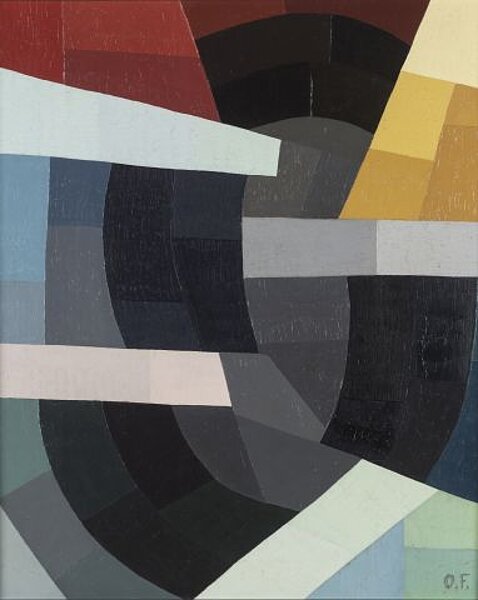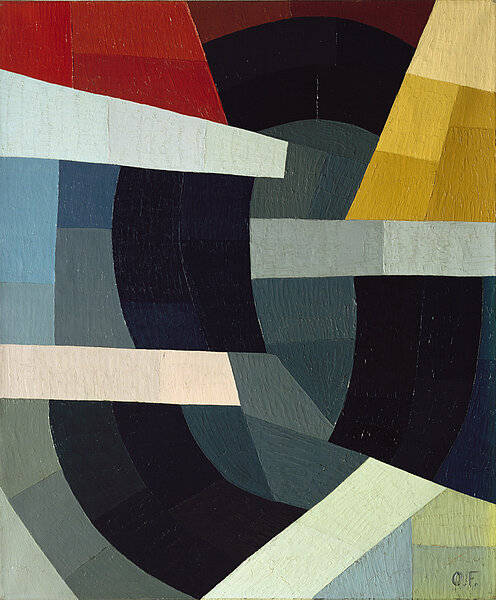
Freundlich, Otto
Kräfte
Forces
1934
| Object description | Oil on canvas |
|---|---|
| Object category | painting |
| Material |
object:
oil paint
Support:
canvas
|
| Technique |
object:
oil paintings
|
| Dimensions |
frame dimension:
height: 78,2 cm,
width: 67,9 cm,
depth: 5 cm
object size:
height: 65 cm,
width: 54 cm,
depth: 2 cm
|
| Year of acquisition | 1965 |
| Inventory number | B 113/0 |
| Creditline | mumok - Museum moderner Kunst Stiftung Ludwig Wien |
| Rights reference | Gemeinfrei | public domain |
| Further information about the person | Freundlich, Otto [GND] | Freundlich, Otto [ULAN] |
| Literature |
Laboratorium Moderne/Bildende Kunst, Fotografie und Film im Aufbruch Otto Freundlich, Kräfte der Farbe : [dieser Katalog erscheint anläßlich der Ausstellung Otto Freundlich - Kräfte der Farbe, im Westfälischen Landesmuseum für Kunst und Kulturgeschichte Münster, 18. 2. - 13. 5. 2001 und im Kunstmuseum Liechtenstein, 27. 5. - 19. 8. 2001] |
“Forces” is the title Otto Freundlich gave to this painting of 1934. This abstract title describes the suggestive power of this geometrical composition of color surfaces. The picture is dominated by a simple oval shape, opened and fragmented by wedge-like elements. Four bright beams push toward the center from the margins, bursting open the central dark shape. This is dissolved and liberated, as the artist noted in a sketch on this work: “The curves have freed themselves from physical slavery by dividing into parts, and each part is looking into the eye of universal forces.” This fragmentation creates a dynamism and a simultaneity of perception: the curves, straight lines, shifts between light and dark, and the varying colors are all seen as direct sensual forces. We note the tension and the lethargy of our own eye is overcome. Otto Freundlich wishes to activate our gaze. He said: “The painter does not paint “for” the eye but “by means” of the eye.” Forces was painted in 1934, one year after the Nazis seized power in Germany. Freundlich was a Jew who lived in Paris, and was able initially to avoid internment thanks to the help of his friend Pablo Picasso. But the painter and sculptor found it more and more difficult to find work. His art was removed from museums. His sculpture “The New Man” was shown on the title page of the exhibition guide to the “Decadent Art” exhibition in Munich in 1937. In 1843, Otto Freundlich was arrested and shortly after he was murdered in Maidanek concentration camp.
© mumok – museum moderner kunst stiftung ludwig wien

